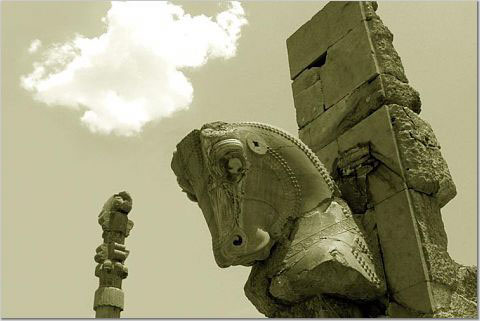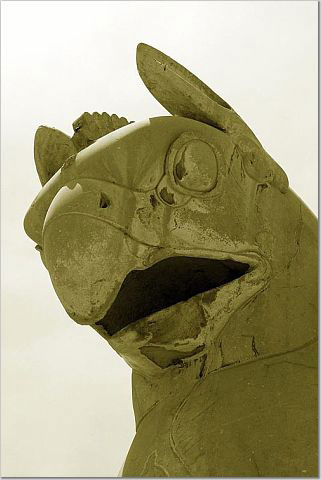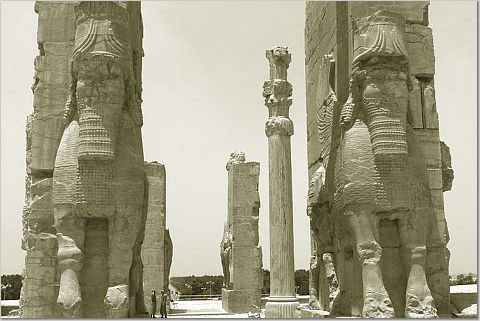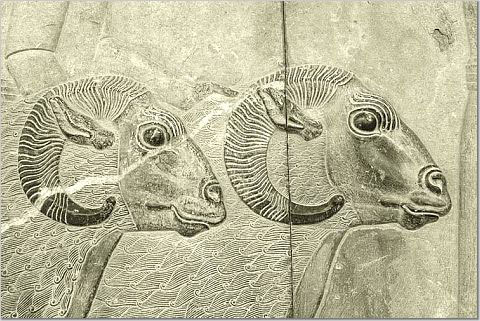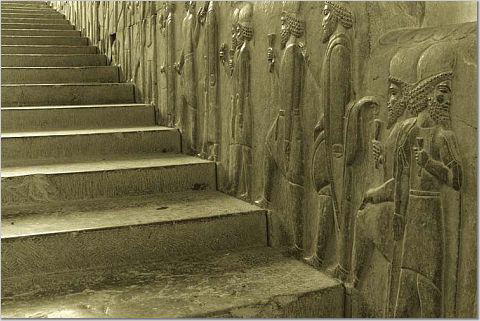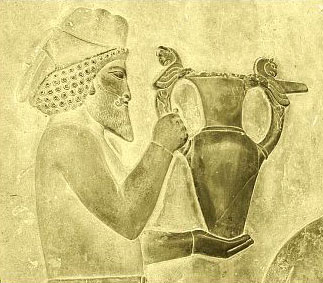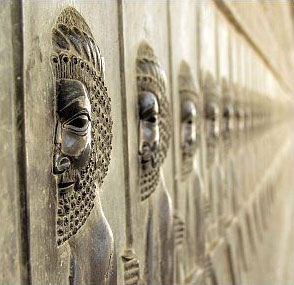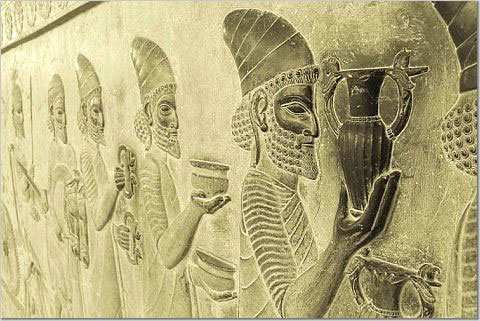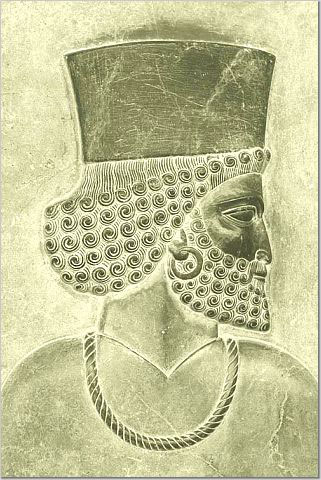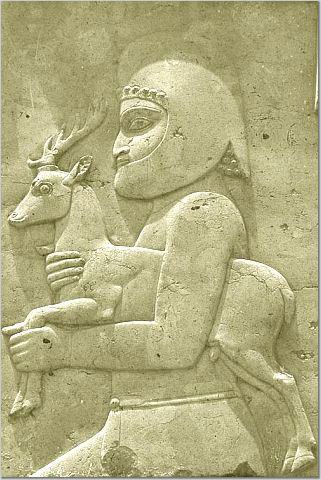The First Charter of Human Rights
By 546 BCE, Cyrus had defeated Croesus, the Lydian king of fabled wealth, and had secured control of the Aegean coast of Asia Minor, Armenia, and the Greek colonies along the Levant. Moving east, he took Parthia (land of the Arsacids, not to be confused with Parsa, which was to the southwest), Chorasmis, and Bactria. He besieged and captured Babylon in 539 and released the Jews who had been held captive there, thus earning his immortalization in the Book of Isaiah. When he died in 529, Cyrus's kingdom extended as far east as the Hindu Kush in present-day Afghanistan.
His successors were less successful. Cyrus's unstable son, Cambyses II, conquered Egypt but later he died in July, 522 BCE, as the result of either an accident or suicide during a revolt led by a priest, Gaumata, who usurped the throne by pretending to be Bardiya (Cambyses' brother, who had been assassinated secretly before Cambyses started out for his Egyptian campaign in 525 BCE) until overthrown in 522 BCE by a member of a lateral branch of the Achaemenid family, Darius I (also known as Darayarahush or Darius the Great). Darius attacked the Greek mainland, which had supported rebellious Greek colonies under his aegis, but as a result of his defeat at the Battle of Marathon in 490 was forced to retract the limits of the empire to Asia Minor.
The Achaemenids thereafter consolidated areas firmly under their control. It was Cyrus and Darius who, by sound and farsighted administrative planning, brilliant military maneuvering, and a humanistic worldview, established the greatness of the Achaemenids and in less than thirty years raised them from an obscure tribe to a world power.
Pasargad, Tomb of Cyrus the Great
The quality of the Achaemenids as rulers began to disintegrate, however, after the death of Darius in 486 BCE. His son and successor, Xerxes, was chiefly occupied with suppressing revolts in Egypt and Babylonia. He also attempted to conquer the Greek Peloponnesus, but encouraged by a victory at Thermopylae, he overextended his forces and suffered overwhelming defeats at Salamis and Plataea. By the time his successor, Artaxerxes I, died in 424 BCE, the imperial court was beset by factionalism among the lateral family branches, a condition that persisted until the death in 330 of the last of the Achaemenids, Darius III, at the hands of his own subjects.
The Achaemenids were enlightened despots who allowed a certain amount of regional autonomy in the form of the satrapy system. A satrapy was an administrative unit, usually organized on a geographical basis. A satrap (governor) administered the region, a general supervised military recruitment and ensured order, and a state secretary kept official records. The general and the state secretary reported directly to the central government. The twenty satrapies were linked by a 2,500-kilometer highway, the most impressive stretch being the royal road from Susa to Sardis, built by command of Darius. Relays of mounted couriers could reach the most remote areas in fifteen days. Despite the relative local independence afforded by the satrapy system however, royal inspectors, the "eyes and ears of the king," toured the empire and reported on local conditions, and the king maintained a personal bodyguard of 10,000 men, called the Immortals.
The Perspolis, Capital of Achaemenid Empire
The language in greatest use in the empire was Aramaic. Old Persian was the "official language" of the empire but was used only for inscriptions and royal proclamations.
Darius revolutionized the economy by placing it on a silver and gold coinage system. Trade was extensive, and under the Achaemenids there was an efficient infrastructure that facilitated the exchange of commodities among the far reaches of the empire. As a result of this commercial activity, Persian words for typical items of trade became prevalent throughout the Middle East and eventually entered the English language; examples are, bazaar, shawl, sash, turquoise, tiara, orange, lemon, melon, peach, spinach, and asparagus. Trade was one of the empire's main sources of revenue, along with agriculture and tribute. Other accomplishments of Darius's reign included codification of the data, a universal legal system upon which much of later Iranian law would be based, and construction of a new capital at Persepolis, where vassal states would offer their yearly tribute at the festival celebrating the spring equinox. In its art and architecture, Persepolis reflected Darius's perception of himself as the leader of conglomerates of people to whom he had given a new and single identity. The Achaemenid art and architecture found there is at once distinctive and also highly eclectic. The Achaemenids took the art forms and the cultural and religious traditions of many of the ancient Middle Eastern peoples and combined them into a single form. This Achaemenid artistic style is evident in the iconography of Persepolis, which celebrates the king and the office of the monarch.
